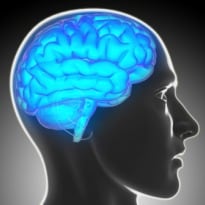Thaimine or Vitamin B1 is a B-complex Vitamin that plays an important part in overall growth. It boosts your metabolism, maintain a strong immunity system and supports the nervous system. Thaimine is found in foods like asparagus, sunflower seeds lentils, flax seeds, spinach, watermelon, cereal grains, oatmeal, potatoes and eggs. It can easily get destroyed when these foods are cooked and processed, hence uncooked or moderately cooked fruits and vegetables are best sources of thiamine. Since cooked and processed foods supply less amount of thiamine, our bodies can easily fall prey to its deficiency. Vitamin B1 deficiency can have numerous effects on the body. Apart from facilitating energy production, Vitamin B1 also plays an integral role in the structure and formation of brain cells and its deficiency can cause severe damage to the brain.According to a new research published in the journal Scientific American Medicine, Vitamin B1 deficiency can cause a brain disorder called Wernicke encephalopathy. Those suffering from this disorder may experience confusion, hallucinations, coma, loss of muscle coordination and vision problems such as double vision and involuntary eye movements. If left untreated, it can lead to irreversible brain damage and death, the researchers said. Wernicke encephalopathy is a medical emergency that requires immediate thiamine treatment either by injection or IV."Wernicke encephalopathy is an example of the wide range of brain diseases called encephalopathies that are caused by metabolic disorders and toxic substances," said Matthew McCoyd, a neurologist at Loyola University Medical Center in the US.
"Toxic and metabolic encephalopathies may range in severity from the acute confusional state to frank coma," McCoyd added."In the absence of treatment, deficiency can lead to irreversible brain damage and death with an estimated mortality of 20 percent," the Loyola neurologists wrote.Inputs from IANS
"Toxic and metabolic encephalopathies may range in severity from the acute confusional state to frank coma," McCoyd added."In the absence of treatment, deficiency can lead to irreversible brain damage and death with an estimated mortality of 20 percent," the Loyola neurologists wrote.Inputs from IANS
Advertisement








